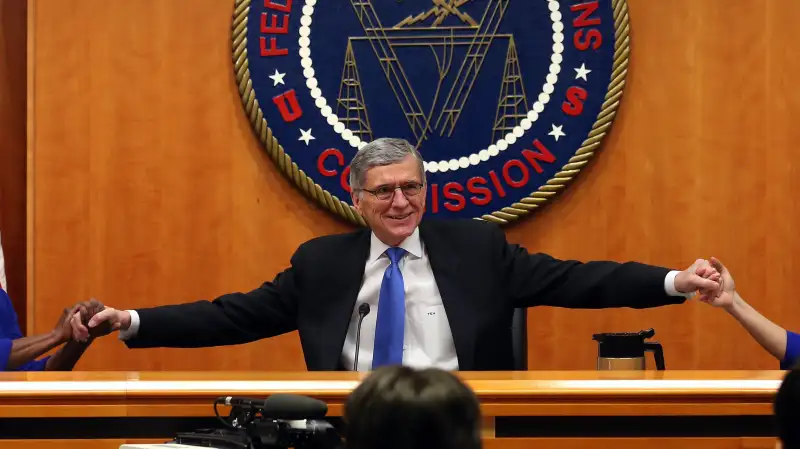Why Net Neutrality Isn't Worth Celebrating

On Thursday, the Federal Communications Commission officially approved net neutrality regulations intended to protect consumers and businesses from internet service providers.
The new rules, broadly outlined earlier this month by FCC Chairman Tom Wheeler, will restrict ISPs like Comcast and Time Warner from blocking or slowing down traffic to certain websites, or allowing certain companies to pay extra for better treatment.
These regulations are positive step, but those swept up by the hype might end up disappointed when the real thing finally arrives. That's because net neutrality doesn't seriously address anything cable companies are currently doing, nor will it help with the number one issue most people care about: the price and quality of their service.
What Net Neutrality Really Does
Let's start with the restrictions against blocking or slowing down websites. It's obviously good that cable companies will now be prevented from actively censoring content, but this isn't something ISPs ever actually practiced.
“I think it’s funny that the three big rules are no blocking, no throttling, no paid prioritization," Dan Rayburn, principal analyst at Frost & Sullivan and owner of StreamingMedia.com, told Money. “That’s all great, but do we have a single instance of an ISP doing any of those things?”
That might sound surprising to those who've heard Netflix's repeated complaints that various ISPs, particularly Comcast, were intentionally degrading its service unless the company paid a "toll." Isn't that exactly what net neutrality is meant to stop?
Well, sort of. What Netflix and Comcast are really fighting over is something called “interconnection” or “peering,” where sites with especially heavy traffic have to pay more for extra capacity. Comcast says Netflix should be charged for using additional resources, whereas Netflix thinks it's being strong-armed into forking over more than it should.
The new net neutrality regulations give the FCC some oversight over these agreements to determine if they're "just and reasonable," but that standard is so vague as to make an already complicated issue difficult to enforce. In Chairman Wheeler's proposal, broadband providers are allowed to pretty much do whatever they want as long as they defend their actions as "reasonable network management," which, as The Verge points out, is "a term which the ISPs have already been using to justify congestion at interconnection points."
What Net Neutrality Doesn't Fix
The upshot of all this is very little will change for the average U.S. internet user in a post-net-neutrality world. That's a bad thing, because America does have a very serious internet problem desperately in need of regulatory assistance: namely, the fact that our internet connections are slower and costlier than the rest of the developed world's.
The solution to this problem is simple: more competition. FCC data from 2013 shows 55% of American households have no choice in their broadband provider, and the agency has said Comcast will be the only broadband provider for nearly two-thirds of consumers if the company is allowed to merge with Time Warner Cable. It's not hard to see why cable companies don't have to compete very hard for your business.
Competition is scarce because it's prohibitively expensive for a new company to build its own fiber network. The FCC could have fixed this problem by requiring "last-mile unbundling," a policy that would force major broadband providers to lease their own networks to competing ISPs, when it reclassified broadband under Title II of the Communications Act. However, Chairman Wheeler explicitly ruled unbundling out of any net neutrality regulation.
This means the average internet user is going to be paying more for subpar internet for the foreseeable future. The Obama administration is planning to address this by encouraging cities to develop their own broadband networks, which, if effective, should create more competition and faster internet service. But such a solution is far away and will likely face significant legal hurdles.
Don't get me wrong, I'm not saying net neutrality is actively bad. We're better off in a world with these kinds of restrictions. That said, the new rules should be seen as little more than a preventive measure for abuses that have largely yet to occur. For more meaningful reform, Americans should throw their support behind other policies that will break broadband monopolies and actually improve their connections. The fight for a better internet isn't over. It's barely begun.
A previous version of this article said a Comcast/Time Warner Cable merger would increase the number of consumers with no choice in broadband providers to two-thirds of Americans. The FCC says a merger would indeed result in two-thirds of U.S. households having only one broadband provider, but this is not likely to be an increase.
